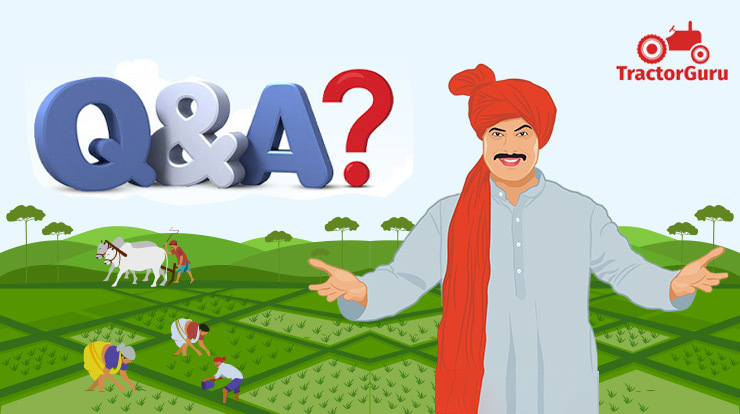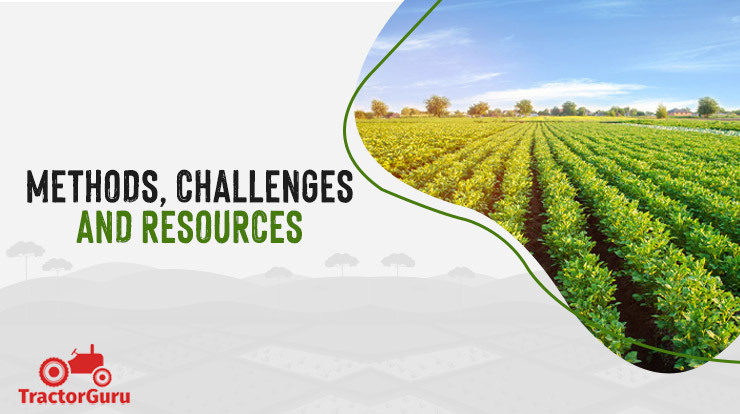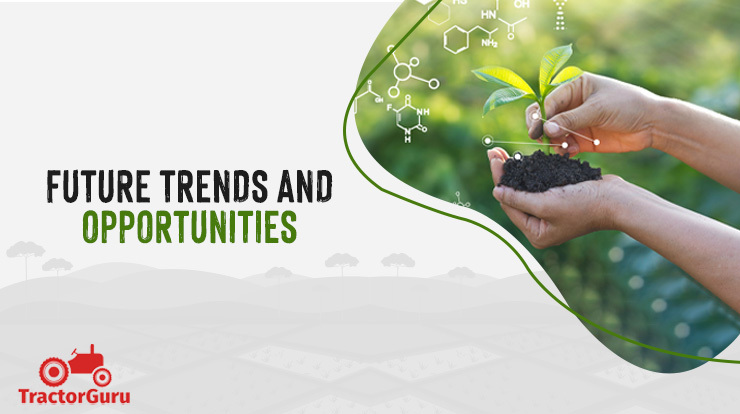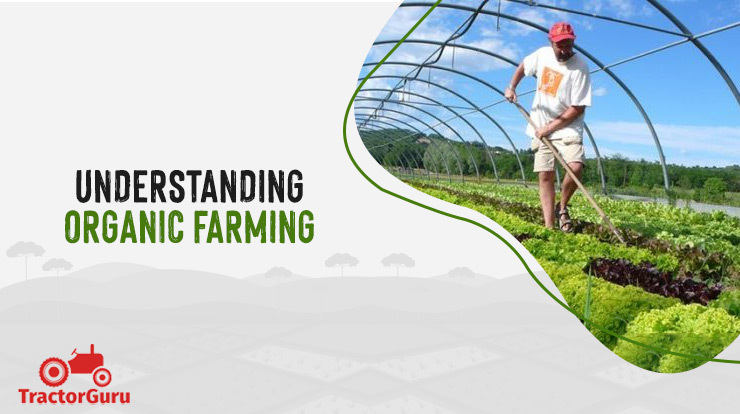Top 20 Organic Farming Questions and Answers – Agriculture Farming FAQ

Do you want to practise farming without using artificial or chemical inputs? Are you interested in discovering how to cultivate nutritious food while preserving the environment and biodiversity? If so, you should learn more about organic farming.
Organic farming uses natural methods and materials for crops and livestock. It limits or avoids unnatural substances and practices. The organic gardening also incorporates crop rotation, cover cropping, composting, and biological pest management. In the article below, we will answer common questions about organic or ecological farming.
Best 20 Frequently Asked Questions on Organic Farming
Let’s dive into some frequently asked questions about organic farming and explore the fundamental aspects of this sustainable agricultural practice.

Q1: Why is Organic Agriculture Necessary, and What Does it Entail?
Ans: Organic agriculture is growing crops without chemicals or GMOs. It protects the environment, health, animals, and plants.
Q2: What Does Certified Organic Mean, and How is Certification Regulated?
Ans: Certified organic means meeting standards and rules by an organisation or agency. Certification is checked by inspecting and verifying products and farms.
Q3: How Does Organic Gardening Aid Environmental Protection?
Ans: It reduces pollution, soil erosion, water use and greenhouse gas emissions. Such feats are accomplished by organic farming by improving soil fertility and water quality.
Q4: How Does Organic Gardening Improve Soil and Water Quality?
Ans: Organic gardening adds organic matter to the soil, such as compost or manure. This improves the soil structure, nutrient content, and microbial activity. Additionally, it avoids runoff and soil erosion from contaminating waterways.
Q5: What Are the Benefits of Organic Food for Human Health?
Ans: Organic food has more antioxidants that help in keeping us young, vitamins which aid in health management, minerals that develop certain aspects of our body, and phytochemicals. It has fewer pesticides, heavy metals, antibiotics, hormones, and GMOs. It can lower the risk of some diseases.

Q6: What Are the Challenges of Organic or Biological Farming?
Ans: Biological farming has higher costs, lower yields, more labour, more pests and diseases, fewer inputs and markets, and less knowledge and support. These can be overcome by using good practices, technologies, policies, and incentives.
Q7: How Can I Start Biological Farming?
Ans: You can start biological farming by:
- Learning about organic farming principles and practices
- Choosing a suitable crop or animal
- Preparing your land or farm
- Getting organic certification or joining an organic group
- Managing your farm according to standards and rules
- Marketing your products or joining an organic network
Q8: What Are Some Examples of Organic Farming Methods and Management Systems?
Ans: Some examples are:
- Crop rotation: changing crops every season or year
- Intercropping: growing two or more crops together
- Mulching: covering the soil with organic materials
- Composting: turning organic waste into fertiliser
- Biological pest control: using natural enemies to control pests
- Vermicomposting: using earthworms to make compost
- Agroforestry: combining trees with crops or animals
- Biodynamic farming: applying holistic and spiritual principles
Q9: What is The Difference Between Organic and Natural?
Ans: Organic and natural are not the same. Organic means certified by an organisation or agency. Natural means no artificial ingredients or preservatives. Natural does not mean free of pesticides, GMOs, or other substances.
Q10: Which Resources Can Organic Farmers Turn to For Knowledge and Support?
Ans: Some sources are:
- OFRF: https://ofrf.org/
- FAO – Organic Agriculture Programme: https://www.fao.org/organicag/en/
- TNAU – Centre for Organic Farming: https://agritech.tnau.ac.in/org_farm/orgfarm_index.html
Q11: Are Organic Yields Lower than Conventional Yields?
Ans: Organic yields might be equal to, higher, or lower than conventional yields depending on various circumstances.
Q12: Why is it Important to Invest in Organic Research?
Ans: Organic research can help solve organic gardening challenges and opportunities and contribute to food security, sustainability, and resilience.
Q13: What is the Organic Agriculture Research Act?
Ans: The Organic Agriculture Research Act is a bill that aims to increase the funding for the USDA’s organic research program from $20 million to $50 million per year.
Q14: What organic provisions were approved in the 2018 Farm Bill?
Ans: The 2018 Farm Bill increased the funding for organic research, certification cost share, and data collection; created an organic policy advisor; and strengthened organic enforcement and fraud prevention.
Q15: Why does organic cost more than conventional?
Ans: Organic products cost more because of higher production, processing, transportation, and retail costs.

Q16: Where can beginning organic farmers and farmers transitioning to organic get assistance?
Ans: Beginning and transitioning organic farmers can get assistance from USDA programs, such as NOP, SARE, NRCS, RMA, or local or regional organisations.
Q17: How does organic farming help mitigate climate change?
Ans: It mitigates climate change by lowering greenhouse gas emissions and boosting carbon storage in the soil.
Q18: How does organic farming increase resilience to climate change?
Ans: Organic farming increases resilience to climate change by improving soil health, water retention, crop diversity, pest resistance, and income stability.
Q19: What are some future trends and opportunities for organic agriculture?
Ans: Some trends and opportunities are increasing consumer demand and awareness, expanding markets and trade, developing new technologies and innovations, integrating with other sustainable practices, and collaborating with other stakeholders.
Q20: What are the benefits of biological farming for animal welfare?
Ans: It benefits animal welfare by providing natural and organic feed, access to outdoor and pasture, adequate space and comfort, and preventive health care.
Conclusion-
Lastly, organic farming holds great potential as we look towards the future. Organic farmers can thrive with exciting opportunities from increasing demand, markets, and innovations. Organic agriculture helps us create a resilient and sustainable system that nurtures the land and the people. You can select this farming if you enjoy raising crops without pesticides, preserving biodiversity, and fostering a better future. Join the network of expanding organic producers to influence agriculture’s future. Begin your organic agriculture journey immediately and support the development of environmental and social peace.
Related Blog
Arable Farming In India
Cattle Farming Tips
Intensive Farming Techniques




